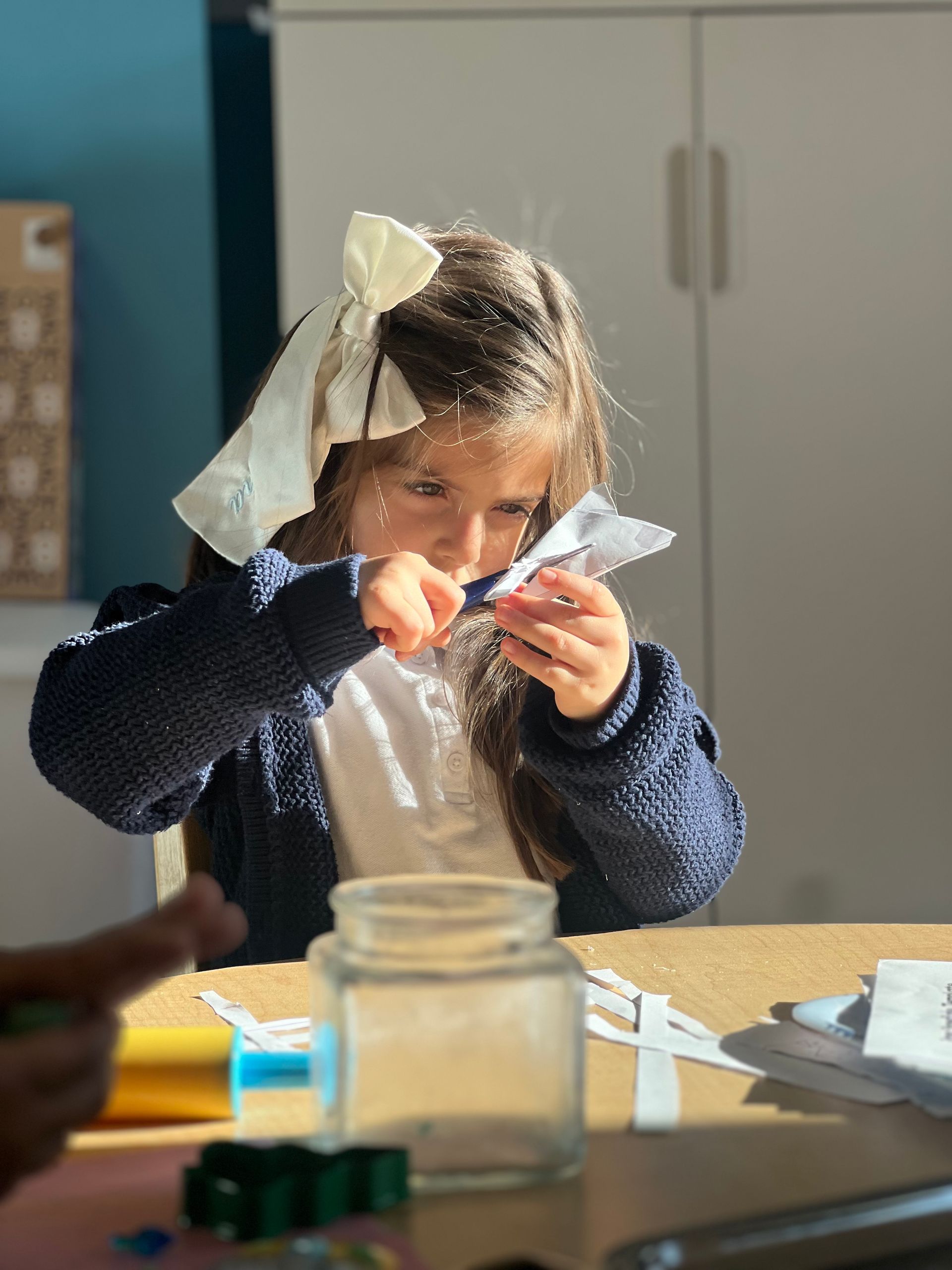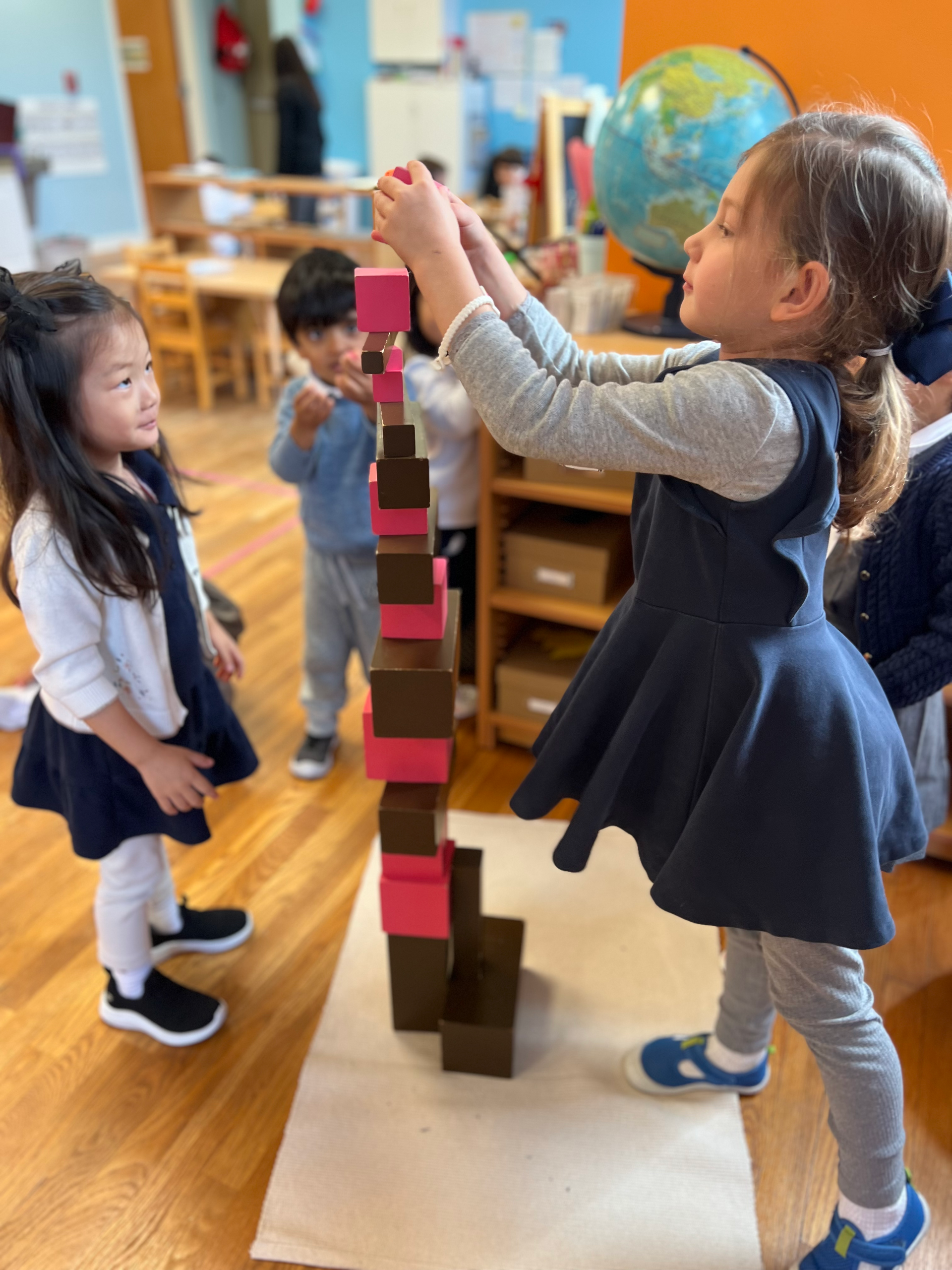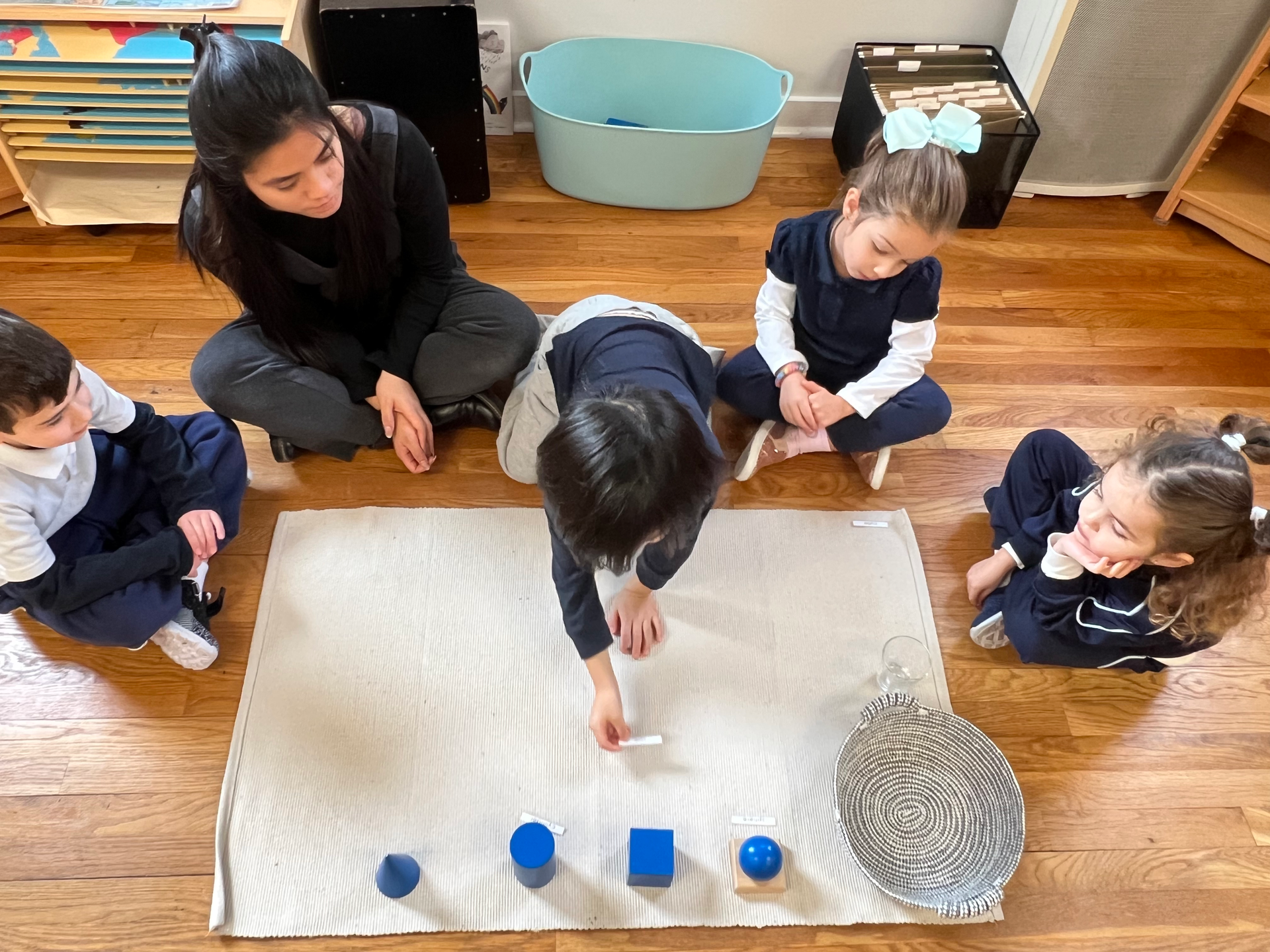
Practicing Montessori at Home
Montessori education isn't confined to the classroom; its principles can extend into the home environment, fostering a seamless continuity in a child's learning journey. Parents play a crucial role in supporting these principles outside of school, creating an environment that nurtures independence, curiosity, and self-discovery. Here are some effective ways parents can integrate Montessori principles into their home life.
Create a Prepared Environment:
The Montessori approach emphasizes the importance of a carefully prepared environment that encourages exploration and independence. At home, parents can create designated spaces for various activities, such as a reading corner with low shelves for books, a cooking area with child-sized utensils, or a nature table for collecting and studying natural objects. Organizing the home environment in this way empowers children to make choices and engage in purposeful activities independently.
Foster Independence:
Montessori education places a strong emphasis on developing independence and self-reliance in children. Parents can support this principle by allowing their children to take an active role in daily tasks and routines. Encourage children to dress themselves, prepare their snacks, and participate in household chores such as setting the table or watering plants. Providing opportunities for children to contribute to the family's daily activities not only builds their confidence but also instills a sense of responsibility and competence.
Follow the Child's Lead:
Montessori advocates for following the child's interests and natural developmental pace rather than imposing predetermined learning objectives. Parents can apply this principle at home by observing their child's interests, passions, and developmental milestones and then providing resources and activities that align with these individual preferences. Offer a variety of open-ended materials and experiences that encourage exploration, creativity, and problem-solving, allowing the child to drive their own learning journey.
Encourage Practical Life Skills:
Practical life activities form an integral part of the Montessori curriculum, teaching children essential life skills and promoting coordination, concentration, and order. Parents can incorporate practical life activities into their daily routines by involving children in tasks such as meal preparation, cleaning, gardening, and caring for pets. These activities not only help children develop practical skills but also foster a sense of purpose and accomplishment.
Emphasize Respect and Empathy:
Montessori education emphasizes the importance of treating children with respect and dignity, acknowledging their individual strengths, interests, and emotions. Parents can model this approach by practicing active listening, offering choices, and validating their child's feelings and experiences. Encourage empathy and kindness by discussing emotions, resolving conflicts peacefully, and promoting positive communication within the family.
By integrating these Montessori principles into their home environment, parents can create a nurturing and supportive atmosphere that fosters their child's holistic development. Through embracing independence, following the child's lead, and emphasizing practical life skills and empathy, parents can empower their children to thrive both academically and emotionally, laying the foundation for a lifelong love of learning.


